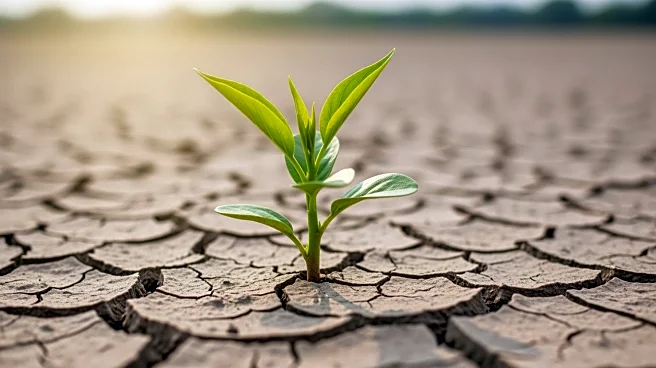What's Happening?
The COP30 conference is emphasizing the critical need for adaptation strategies in response to the ongoing climate crisis. With recent events such as Hurricane Melissa and widespread floods highlighting the immediate impacts of climate change, the conference is being
dubbed the 'Adaptation COP.' The message from global leaders, including António Guterres, is clear: adaptation must be prioritized to prevent societal collapse. The conference is addressing the need for infrastructure improvements, such as flood-proof housing and heat-resilient schools, to cope with the changing climate. Despite the focus on clean-energy investments, experts argue that adaptation is distinct from mitigation and essential for maintaining societal stability.
Why It's Important?
The emphasis on adaptation at COP30 reflects a growing recognition that climate change is not a future threat but a present reality. Investing in adaptation measures is crucial for protecting communities and infrastructure from the adverse effects of climate change. Failure to prioritize adaptation could lead to increased vulnerability and economic losses. The conference highlights the need for governments to treat adaptation as a matter of national security, ensuring that societies can withstand climate-related challenges. This shift in focus may influence public policy and funding decisions, driving efforts to build resilience against climate impacts.
What's Next?
As COP30 continues, discussions are expected to focus on securing commitments from governments to invest in adaptation strategies. The conference may lead to new international agreements or funding initiatives aimed at supporting vulnerable regions. Stakeholders, including environmental organizations and policymakers, will likely advocate for comprehensive adaptation plans that address both immediate and long-term climate risks. The outcomes of COP30 could shape global climate policy and drive efforts to integrate adaptation into national and local planning.
Beyond the Headlines
The focus on adaptation at COP30 underscores the ethical responsibility of governments to protect their citizens from foreseeable harm. It also highlights the need for a holistic approach to climate action that balances mitigation and adaptation. The conference may prompt discussions about the role of equity and justice in climate policy, ensuring that vulnerable populations receive the support they need to adapt to changing conditions.
















